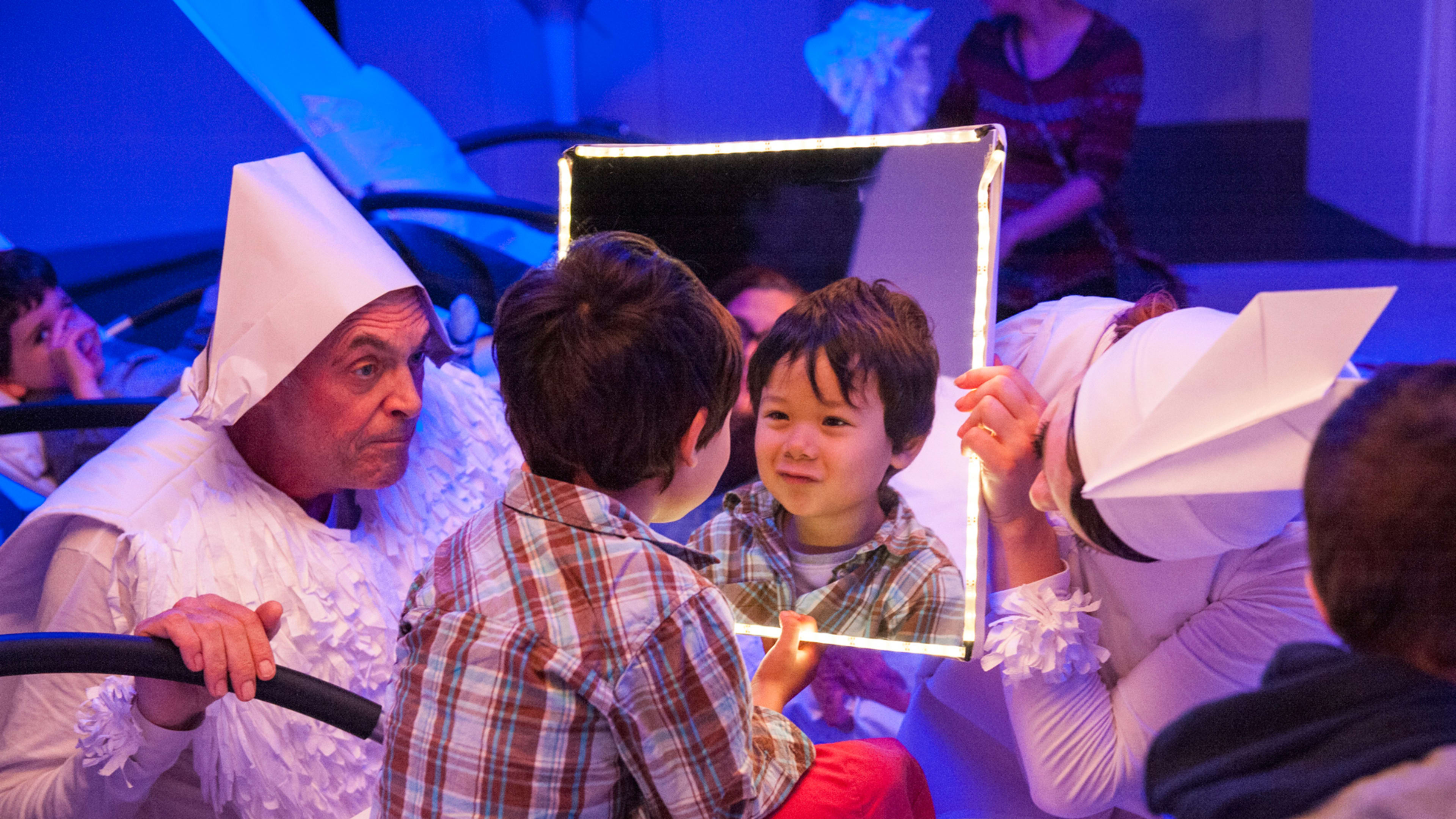About four years ago, Russell Granet, an arts executive at New York’s Lincoln Center, had an eye-opening conversation with a parent that ended up changing the direction of Lincoln Center’s programming. The parent lamented that she could no longer take her family to the world-class performing arts center because the shows there were too overwhelming for her child, who is on the autism spectrum. “It’s just not a place for us,” Granet recalls the parent saying.
Granet took the comment to heart.
“When you work at Lincoln Center, you don’t really want to hear that,” says Granet, who headed up the organization’s education arm when we spoke. (He was recently named Lincoln Center’s acting president.) “We have a very large mission here—the greatest art for the largest number of people.”
It’s a broad mandate, for sure, but Lincoln Center is one step closer to achieving it this week with the Big Umbrella Festival, its first-ever festival dedicated to children on the autism spectrum. The event kicked off last week in time for Autism Awareness Month, and runs through May 6.
Big Umbrella features a mix of interactive theater, multi-sensory experiences, and “relaxed” performances that take place across the Lincoln Center campus. The month-long festival also includes professional development opportunities for artists interested in presenting autism-friendly work. Big Umbrella was produced with a diverse mix of support from foundations, philanthropists, and public funds facilitated by autism initiatives.
“This has been four years in the making,” Granet tells me, referring to his aforementioned conversation with a parent. As it turned out, other senior staff members at Lincoln Center Education were also previously having similar conversations. So Lincoln Center got to work, reaching out to autism researchers, parents, and pediatricians to brainstorm ways it could better serve patrons with autism, and their families.
Low-Sensory, Low-Batch
Because people on the autism spectrum are often overwhelmed by stimuli and surprises, basic theatrical conventions—flashy lights, costume changes, sound effects—can be terribly upsetting, especially for children on the spectrum. For years, theater companies have produced low-sensory stage shows to make theater more inclusive—Broadway hits like The Lion King and Aladdin offer autism-friendly performances, for instance—but Granet says parents have told him that those types of performances still don’t meet the needs of all kids on the spectrum.
“It’s great that they’re low light, and low sound—and the transitions are smoother—but if your kid can’t sit for two and a half hours, it doesn’t really make a difference,” Granet says.
With help from a U.K. theater troupe called Oily Cart, Lincoln Center eventually settled on “small-batch theater,” a format that allows performers to give extra attention to each audience member. “What it means is you’ve got eight actors, eight young people on the spectrum, and the story is bespoke to that young person,” Granet says.
The event’s signature small-batch show is called Up and Away. In it, each young audience member gets a “sidekick,” a performer who guides the child on a journey around the world in a hot air balloon, à la Jules Verne. The soft lights and minimal stage elements are autism-friendly, and the narrative is carefully explained to the children in advance, so there are no surprises.
Meanwhile, the one-on-one format lets performers react to the children’s reactions, making these interactions part of the storyline. It doesn’t always go perfectly—there’s a quiet room for when children become overwhelmed—but Granet says parent feedback has been overwhelmingly positive, with some saying it was the first time their child has been able to follow along with a story.
Granet is the first to admit that small-batch theater is not a great business model. “It’s very expensive,” he adds. “We have one actor for every child, but that’s what works.”
Tim Webb, Oily Cart’s cofounder and a veteran in children’s theater, tells me the troupe has been staging autism-friendly productions in the U.K. since about 2004. “This kind of work differs from conventional theater in that it’s much more close up,” Webb says.
Lincoln Center Education commissioned its first small-batch piece in 2013. It premiered in 2015—after two years of development work—and demand was overwhelming. It quickly built up a waiting list of around 300 families, and the waiting list continued to build even after the show was extended.
With the Big Umbrella Festival, Granet says Lincoln Center is now committed to making autism-friendly programming part of its regular season, and with about 1 in 68 school-aged children identified as being on the spectrum, it’s about time. “We really did come back and say, alright, if there’s a huge population out there of young people who are going to be adults—who are adults—we really need to be thinking about this,” he says.
This story has been updated to reflect Granet’s recent change in title.
Recognize your brand’s excellence by applying to this year’s Brands That Matter Awards before the early-rate deadline, May 3.





